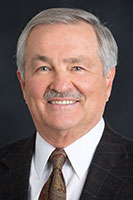Will RTD Do the Transparent Thing and Pay Peanuts to Record Meetings?

RTD has an elected board that makes decisions affecting the entire Denver region, yet more than 15 years into the 21st century, the transit agency still doesn’t record or broadcast its public meetings. This, in a technological era that allows people to broadcast live videos from their phones.
In May RTD Director Kent Bagley asked his colleagues to support his bid to record board meetings, committee meetings, and study sessions, and put them on RTD’s website. The motion failed 8 to 4. Directors cited the expense in both dollars and staff time.
The expense? $35,000 a year, according to a memo. That’s a tiny morsel of the agency’s annual budget of $518 million. And yes, RTD is busy, but all the more reason to make transparency a priority.
“We have a hell of a big budget,” Bagley said in an interview Tuesday, adding that RTD has close to $5 billion worth of projects either recently completed, under construction, or about to begin. “We’ve got more capital infrastructure going on at RTD than any of the local governments almost combined. So why not put it out there?”
It’s not as if people aren’t interested. RTD recently touted its telephone town halls, which saw more than 30,000 people participate over one month of interactive meetings about the FasTracks expansion. Those meetings were the exception, though, not the rule.
Even if no one is interested, how elected officials arrive at decisions has to be readily available because that’s good government. “It’s not so much the votes that are taken, it’s the process, and from my perspective some members of the board don’t want the process to be as opened up as they might say they want it to be,” Bagley said.
Recording and broadcasting public meetings is not excessive. It’s expected, says Allan Wallis, a professor of public affairs at CU Denver who specializes in local government.
“I think we have a growing expectation of transparency,” Wallis said. “In citizens’ growing use of media, there’s an expectation that the meetings are interactive. If there’s one issue I really care about, it’s not good enough that it’s posted after the fact. That’s informational, but it’s still a one-way model of communication.”
In other words, Bagley’s bid to record meetings is just a start. Public discussions should be broadcast live, and allow the public to participate remotely. “I think we are definitely moving in that direction,” says Wallis. “It’s a matter of saying, ‘We have the technical resources, and it’s in our budget.’ It’s not a matter of not wanting to be transparent, but it’s about prioritizing it.”
Meanwhile, Bagley hopes the board will prioritize this baseline standard of government transparency when he brings it up again next year. For the record, here’s who voted for and against recording public meetings:
- For: Kent Bagley, Bill James, Tom Tobiassen, Jeff Walker
- Against: Ernest Archuleta, Barbara Deadwyler, Claudia Folska, Tina Francone, Gary Lasater, Judy Lubow, Natalie Menten, Paul Solano


